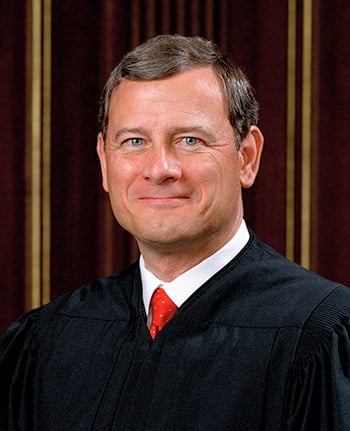Chief justice says partisan confirmation battles create 'real danger' for Supreme Court

Chief Justice John Roberts.
Chief Justice John G. Roberts Jr. on Tuesday criticized partisan rancor in the Supreme Court nomination process and warned of a negative impact.
Roberts said the Supreme Court decides cases “in a completely nonpartisan way,” but there is “a real danger” that partisan hostility will affect the court, report the Washington Post, the New York Law Journal (sub. req.), the Associated Press and the Albany Times Union.
Roberts commented in response to a question by Rensselaer Polytechnic Institute President Shirley Ann Jackson during an appearance at the school.
Jackson asked about the “extremely partisan confirmation process,” including Republicans’ refusal to consider the nomination of Merrick Garland and Democrats’ failed attempt to block the confirmation of Neil Gorsuch, who took the judicial oath on Monday.
During the whole process, Roberts said, “the Supreme Court has been quietly going about its business of deciding the cases before it, according to the Constitution, in a completely nonpartisan way.” And the court would continue to do that, Roberts said. But he expressed concern about the impact of the recent standoffs.
“It is a real danger that the partisan hostility that people see in the political branches will affect the nonpartisan activity of the judicial branch. It is very difficult, I think, for a member of the public to look at what goes on in confirmation hearings these days, which is a very sharp conflict in political terms between Democrats and Republicans, and not think that the person who comes out of that process must similarly share that partisan view of public issues and public life.”
Roberts said the justices serve together for a long time, and they have to get along. “Knock-down, drag-out fights” over a big case would interfere with the relationship, he said. “It’s kind of like a marriage, right?” he said. “You hope it goes on for a long time and can’t sort of have every fight be a huge fight.”
Roberts addressed several other topics in the news. He doesn’t favor televised oral arguments because justices might temper their remarks and “we might end up talking like they do in Congress.” He thinks lifetime tenure is “incredibly important” for federal judges. And he resists the idea of the need for some kind of proportional representation to create more diversity on the court. The court “is not a representative body,” he said.



